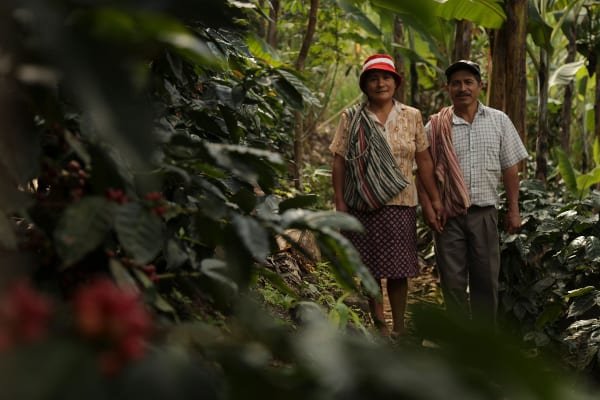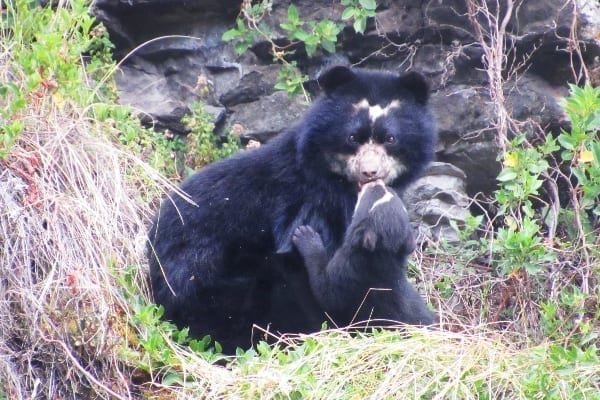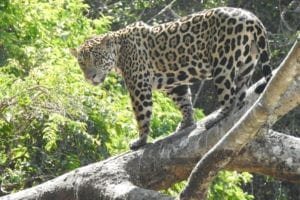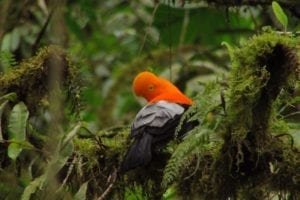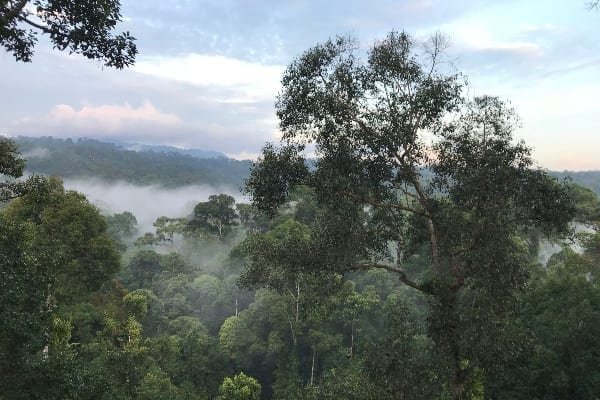The coop Puro belongs to follows in the footsteps of nature; after the bean has been removed from the coffee cherry, the fruit is composted and returned back to the soil around the coffee plants. This gives the plants all the nutrition they need, and also means that no manure needs to be trucked in (a point celebrated by vegan coffee drinkers).
Puro’s real conservation magic lies in its exclusive partnership with World Land Trust, the UK-based charity of which Sir David Attenborough is a patron.
Puro Coffee sales create a cash stream that flows back into funding the purchase and protection of Puro rainforest reserves.
These reserves now span more than 430km² across 11 coffee-producing countries – that’s an area larger than the UK’s 100 largest natural parks combined.
But it’s what these reserves contain that sparks the real talking point for Puro.
Protecting species
Water sources in Honduras have quadrupled since being protected by Puro, meaning local coffee-growing communities are now able to drink tap water.
More than 500 species at risk of extinction now call Puro reserves home, including the saola (Asian unicorn), black rhino, Malayan pangolin, golden poison arrow frog, rondo bushbaby, golden-rumped elephant shrew and black-headed spider monkey.
Many new species previously unknown to science have been discovered in Puro’s reserves, three of which have been named in honour of Puro: a frog (Pristimantis puruscafeum), an orchid (Teagueia puroana) and a tree, which will be announced very soon.
Amphibians considered extinct for many years have now discovered it’s safe to step out and be spotted in Puro’s Ecuador and Guatemala reserves.
Scientists from the Royal Botanic Gardens, Kew recently outlined the 10 golden rules for tree planting; number one was to protect standing forests first. This was great news for Puro, as it has been estimated the company’s reserves protect more than 27.5 million trees and store 41.5 million tonnes of carbon. One of Puro’s reserves in Guatemala protects the sparkling Laguna Brava, the country’s last remaining pristine lagoon.
Working with equals
We can’t look seven generations ahead without acknowledging ancestral wounds. After helping to plant trees and cleaning the lagoon on the land that is now the Finca de Puro Café (Puro Coffee Farm), the team at Puro returned home to find this moving message: ‘You know we are raised to see blonde, blue eyed people as superiors… and when you come here, work hard with us, eat with us and make us feel like equals, you guys leave a huge mark. And I’m really grateful for it, thank you.’
By trying to understand the complexity of the challenges faced by coffee farmers, Puro rooted itself in the same soil in a bid to empower change from within. The team is mindful of being equals: divided by oceans, connected by coffee.
Puro Coffee, which is abundant in credibly conscious cafés, kitchens, restaurants, hotels and offices, is now seeking new tribe members to join in serving, selling and celebrating a type of success that’s aligned with community and conservation.
 Play Video about This Rock Might Just Save The World
Play Video about This Rock Might Just Save The World Play Video about Play 2 hours of rock
Play Video about Play 2 hours of rock Play Video about Play 2 hours of brook
Play Video about Play 2 hours of brook Play Video about Play 2 hours of sheep
Play Video about Play 2 hours of sheep

















